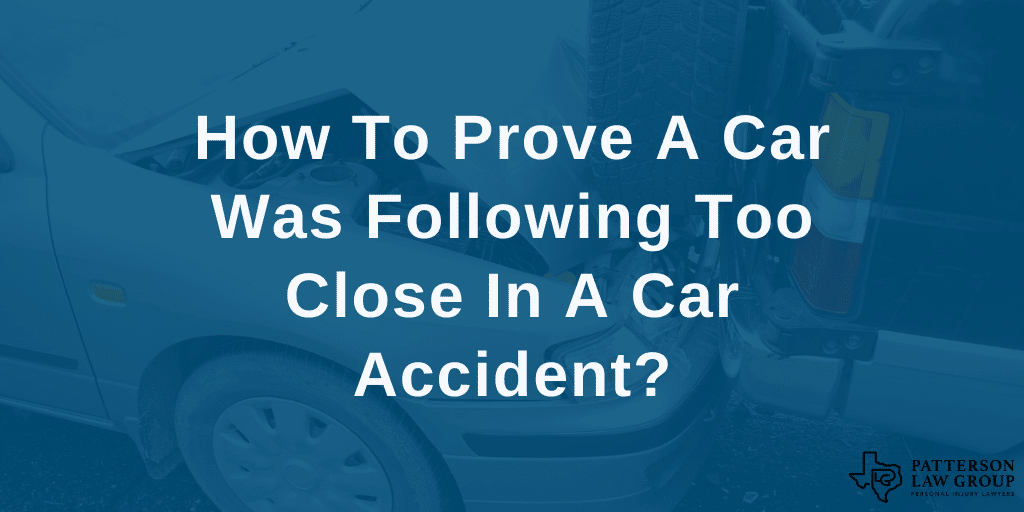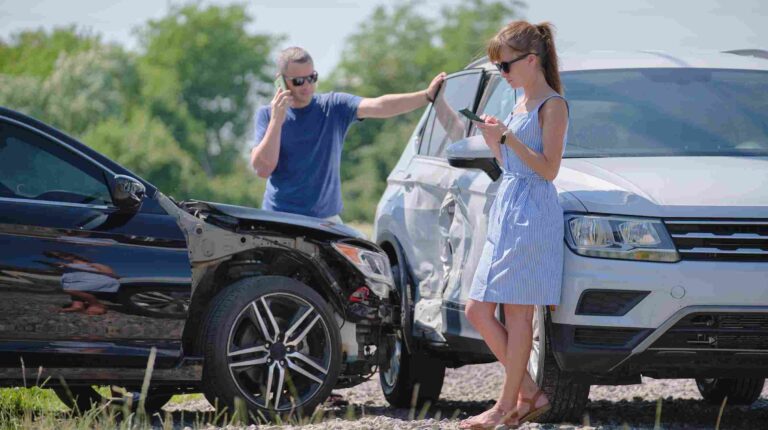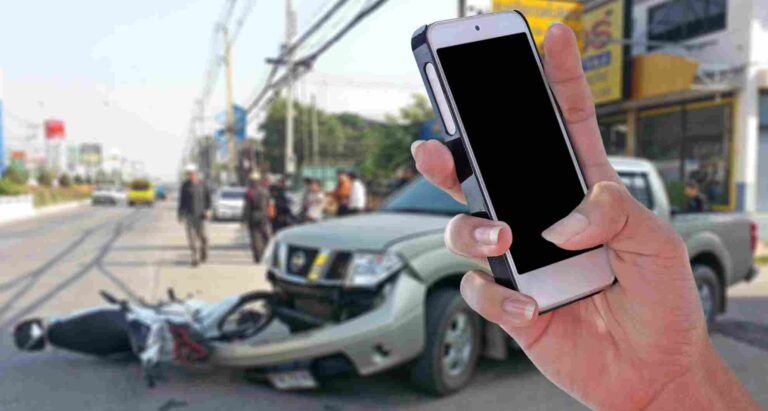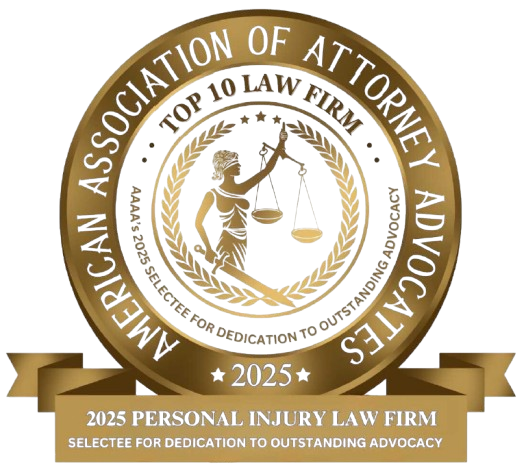The best way to prove a car was following too close is to have photos or camera footage from the scene. However, since this may not always be possible, the next best thing is to have witness statements and lots of evidence.
One of the most common types of car accidents in Texas is a rear-end collision. In the United States, there are around 1.7 million rear-end collisions every single year. These accidents have resulted in thousands of injuries and fatalities for involved drivers and passengers.
In many cases, rear-end collisions are caused by one driver following the car in front of them too closely. When the car in front stops suddenly or attempts to turn, the car following behind rams into it and causes an accident.
Rear-end collisions are quite common, but they are also quite harmful. If you’ve been hit in a rear-end collision, you have likely suffered injuries and damage to your vehicle.
Thankfully, if you can prove the other car was following you too close, you might be able to recover compensation.
What Is Considered Tailgating In Texas?
The DMV provides guidance by indicating that cars must allow at least two seconds of driving time between their car and the car they are following. These two seconds allow for the time a driver needs to see a hazard and react to it.
If a car is following with less than a two-second cushion and will thus be in danger of running into the car in front, this is considered tailgating.
According to the Texas DMV, about 950,000 injuries and 2,000 deaths can be attributed to rear-end collisions every year. Texas law defines rules regarding the following distance in this manner:
“An operator shall, if following another vehicle, maintain an assured clear distance between the two vehicles so that, considering the speed of the vehicles, traffic, and the conditions of the highway, the operator can safely stop without colliding with the preceding vehicle or veering into another vehicle, object, or person on or near the highway.”
What Is Needed To Prove A Driver Was Tailgating In A Car Accident?
In most rear-end car accidents, the car that did the rear-ending is at fault.
However, it can be difficult to prove this. The other driver can try to claim you didn’t have brake lights or failed to signal and it will be hard to prove otherwise.
The most important aspect of proving a driver was tailgating is having witness statements, either from policemen who noticed it or from other drivers on the roadway.
After a tailgating incident, you should attempt to get witness statements as soon as possible.
Other ways to prove tailgating include hard evidence from nearby traffic cameras or forensic examinations.
For example, experts might be able to examine skid marks from the tailgating car to determine how close they were following.
If you have been involved in a rear-ending caused by tailgating in the Fort Worth area, reach out to our award-winning lawyers at Patterson Law Group. Our lawyers will help you gather the evidence and testimonies you need to prove a driver was tailgating you in a car accident.
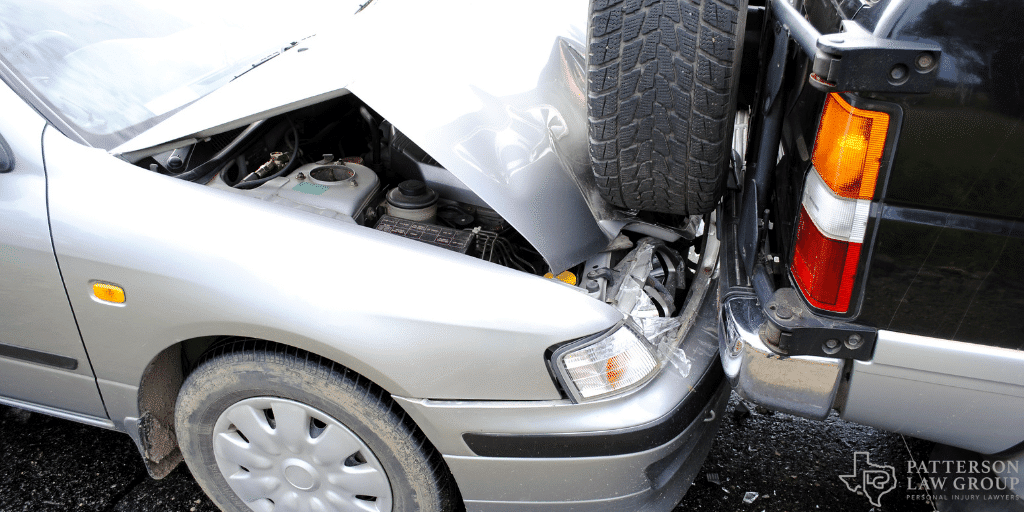
Common Injuries In A Rear-End Car Accident
A rear-end accident causes a tremendous amount of shock to the bodies of those in the vehicle. These accidents are often quite forceful, depending on how fast the following car was driving and can result in serious injuries and damage.
The most common injury from a rear-end accident is whiplash. Whiplash is caused by the sharp back and forth movement of your neck when a car hits you from behind. It can cause lingering pain in your neck, back, head, and shoulders.
Some of the other most common injuries in a rear-ending include:
- Head injury – your head may hit a window, steering wheel, airbag, or another part of the car, causing damage to your skull and possibly even a concussion or something more serious.
- Fractures – if you braced for impact, you might suffer from fractures in your legs, hands, feet, or back due to the pressure exerted on your bones.
- Back injury – the swift back and forth movement or your body can cause whiplash, as mentioned, but can also extend down your back and cause damage to your spine and muscles.
- Scarring or disfigurement – if your face or other parts of your body are damaged by broken glass or other objects, you could have severe skin damage that can be difficult to fix.
- Paralysis – though less common in rear-end accidents, trauma to the head, neck, and back can cause temporary or permanent paralysis.
What To Do After A Rear-End Car Accident In Texas?
If you have been in a rear-end accident in Texas, you are likely dealing with a lot of pain and stress.
Not only is your car severely damaged, but you are suffering from a broken body too. And you know that this accident was caused by tailgating, not by your own actions.
After a tailgating accident, there are a few things you should do:
- Make sure everyone is okay and call an ambulance to get the care you need.
- Call the police to get an official report.
- Get witness statements and contact information.
- Get contact and insurance information from the other driver.
- Get the medical treatment you need.
- Call an attorney from Patterson Law Group to get help on your case.
In Texas, cases are tried on a comparative fault basis. That means that the person who was over 50% responsible for the accident can be held liable in court for damages. If a driver was tailgating you, they are at fault for your accident and you should not have to pay for the damage they caused.
Don’t try to deal with the stress of proving fault and dealing with insurance companies on your own. The attorneys at Patterson Law Group are ready and eager to help you work through the details and determine the damages you deserve.
After a tailgating accident in the Fort Worth area, contact Patterson Law Group as soon as you can. Our top-rated accident attorneys will take your case into our hands and see it through. We will get you the justice and compensation you deserve and help you get back to living well.


